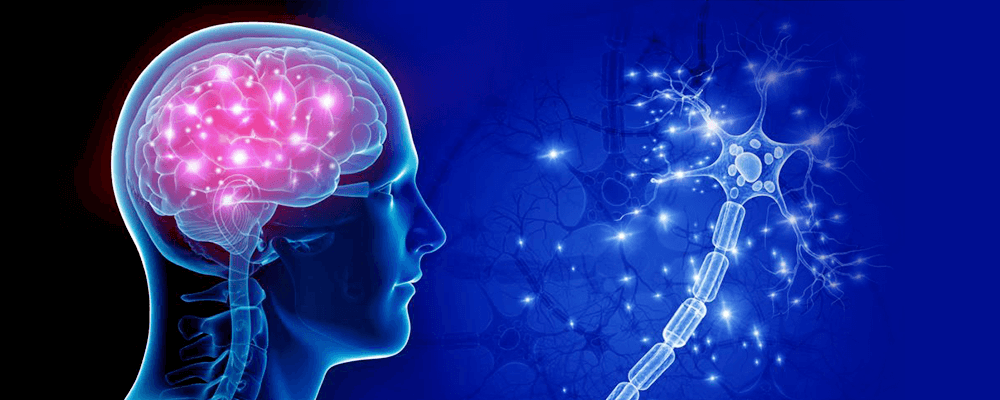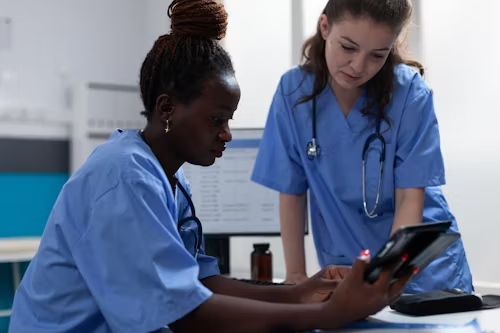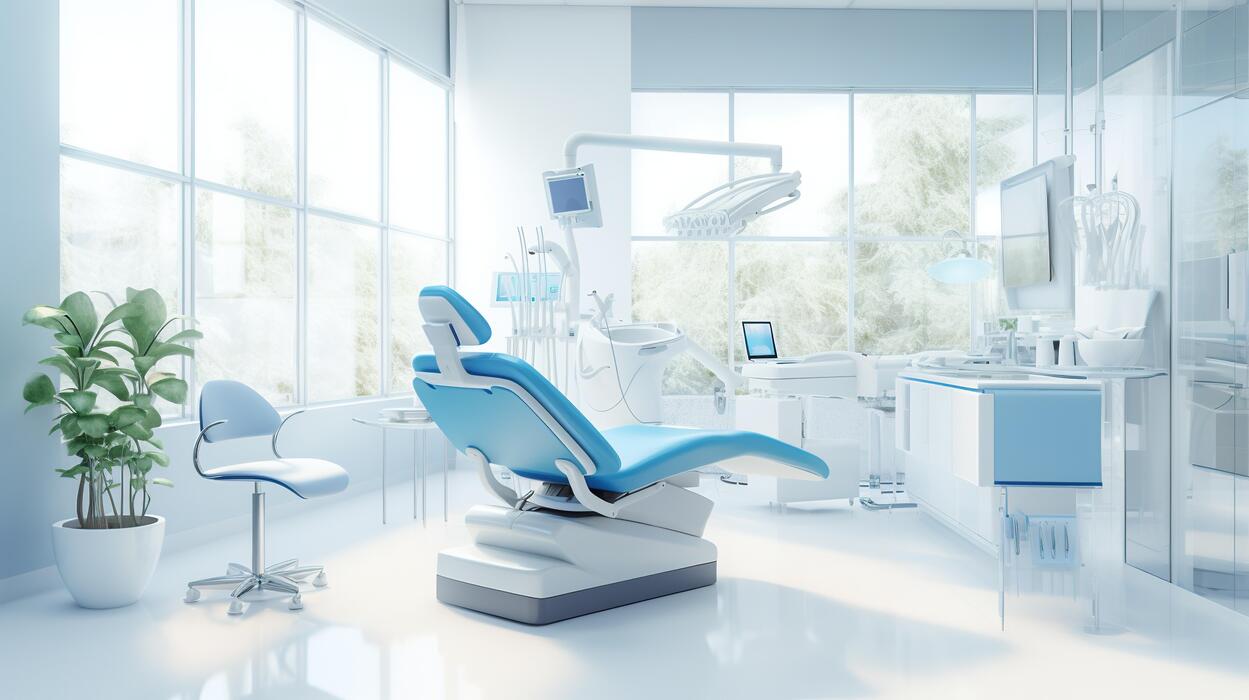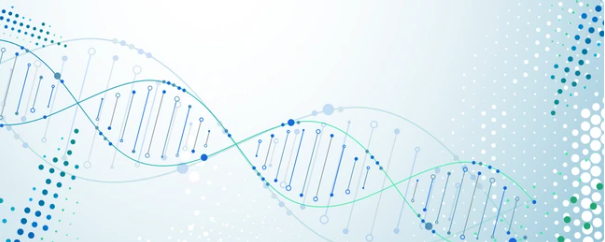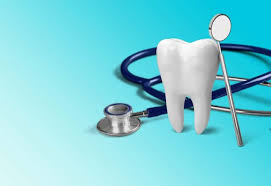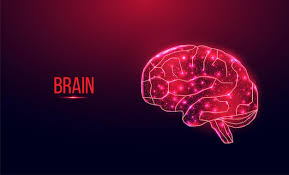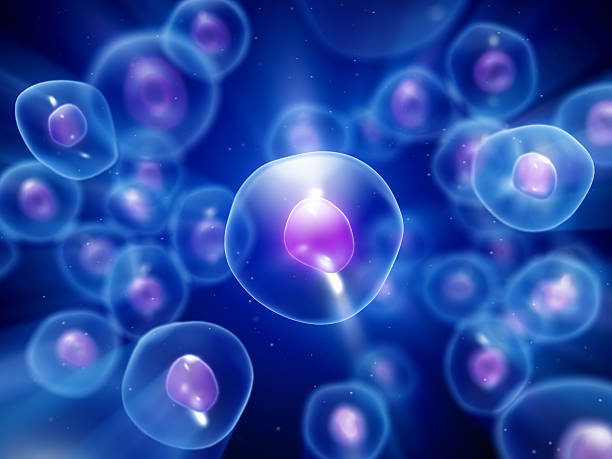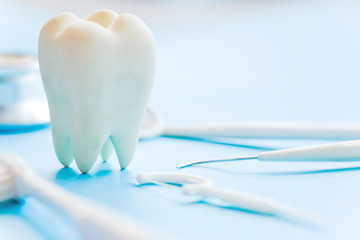About Conference
With immense pleasure and excitement, we are euphoric to invite you to attend the "2nd Edition International Conference Neurology and Psychiatric Disorders” which will be held during August 25 - 26, 2023 in Paris,France.
Neuropsychiatric Conference 2023 is scheduled in Hybrid Format with both onsite and virtual versions. We believe that our decision will enable broad participation.
The main objective of the Neuropsychiatric Conference 2023 will be to review the new findings and advancements in the field of neurology. This event will be of special interest to any professional involved in the neurology healthcare domain, such as neurologists, Dementia nurse practitioners, manufacturers of neurology drugs & health care devices, academicians, Directors, CEO's of Organizations, Association Presidents, Researchers, Scientists, Graduates, Post Graduates, and Ph.D. Scholars, students, parents, clinical coordinators, health care professionals of any discipline. The conference gains special interest with every passing year in its particular goal to advance the health care knowledge and practice of Neuro-Psychiatric: related research and technology involved. It will provide a platform for multidisciplinary exchange of information to accelerate neuropsychiatric disorders and shed light on the significant scientific discoveries in all aspects of Neurology Health Care. Above all, it will be a meeting place to network and meet like-minded people in the field of Neurology, psychiatry, Health Care, and Research.
About Neuropsychiatric Conference 2023:
Venue: Paris,France.
Date: August 25– 26, 2023
Join us on August 25– 26, 2023 in marvelous Paris, the France for the 2023 , 2nd Edition International Conference on Neurology and Psychiatric Disorders.
The 2nd Edition International Conference Neurology and Psychiatric Disorders are one of the events that bring together eminent neurologists, psychiatrists, psychologists, and neuroscientists experiences from different countries and exchanges their views through scientific discovery, interactive sessions, keynote lectures, workshops and offers exceptional sessions, presentations with a great education and networking opportunities for all levels of academic professionals and with leaders in the field of neurology, neuroscience, psychiatry, and psychology.
Neurology and Psychiatric Disorders has been planning and aiming to stimulate new techniques for the treatment of neurological, stroke, and mental health disorders that would be beneficial for neurosurgery.
The Neuropsychiatric Conference 2023 will be organized around the theme " Trends in Neuroscience and Psychiatry".
Our goal is to bring together worldwide distinguished academics in the field of Neurology and Brain to exchange and share meaningful experiences of various treatment procedures for neurological disorders and stroke.
Our Goal:
- Spread knowledge about the nervous system and its diseases.
- Promote research on the causes and treatment of diseases of the nervous system·
- Formulate and promote policies and actions that will support the goals of academic neurology.
Scope and Importance: Neuropsychiatric Conference 2023
Most countries in the world now offer access to medical education. Neuropsychiatry Conference provides a platform to encourage prevention and control of health against neurological disorders and stroke through a full range of information and access to world education.
Important Notes
March 18th, 2023
May 15th, 2023
July 9th, 2023
ORGANIZING COMMITTEE
Speakers
CALL FOR ABSTRACTS
Clinical Psychology is something that deals with the assessment of human abnormal behavior and its treatments. The common method of treatment for this type of abnormal behavior is Talk therapy or Psychotherapy which was first developed by Psychoanalyst Sigmund Freud; he was the first one who focused that mental illness can be treated with talking to the patients.
Behavioral genetics tells how the genetic composition of a person, the environment they are exposed to affect the behavior of that person. The technological advancements of genetic engineering in 21st Century have made it possible to measure and modify the genome of a person which is the key to behavioral genetics and later the Eugenics movement
Biological Psychology is the only branch that says that there is an underlying physiological cause for all our emotions, thoughts, and feelings. For example the release of oxytocin in females leads to bonding behavior and so on... As behavior is controlled by central nervous system, physicians are trying to understand how the brain works to different stimuli like sense, perception, and motivated behavior.
Educational Psychology deals with behavior of a person during learning process from a cognitive aspect. Educational psychology helps the teacher to understand the development of his pupils, the range and limits of their capacities of learning. Its works by incorporating other branches like Developmental Psychology, Behavioral Psychology and Cognitive Psychology.
People go through so many physical and emotional changes over the course of their lives, while these changes are normal; developmental Psychology mainly focuses on studying these emotional, behavioral changes over their lifetime. These studies help in detecting abnormal changes and help to treat some of problems like depression, low self-esteem and others.
Applied Behavior Analysis is a type of treatment process which focuses mainly on improving specific behavior process. Unlike most of the therapies where they try to explain why and how the person behaves like they do, Applied Behavior analysis tries to replace bad with good; it uses positive reinforcement to bring that change. This method of therapy is mainly applied for autism patients.
Experimental Psychology involves the fact based aspects. It establishes the relationship between the activities of the brain and our behavior. Most of the experiments conducted in this area are done in Laboratory under controlled conditions. It also deals with hypothetical questions.
Experimental psychology explores basic concepts, such as memory and motivation, in many areas, such as child, social and educational psychology. Almost all Experimental psychology work is conducted in controlled environments, such as university research labs. While every branch of psychology strives to understand human behavior and thought, experimental psychology solely focuses on controlled experiments with designated variables, test subjects and statistical results.
Psychological disorders are conditions that affect your thinking, feeling, mood, and behavior. They may be occasional or long-lasting (chronic). They can affect your ability to relate to others and function each day. The causes of mental disorders are often unclear. Theories may incorporate findings from a range of fields. Mental disorders are usually defined by a combination of how a person behaves, feels, perceives, or thinks.
Social psychology is a discipline that uses scientific methods to understand and explain how the thoughts, feelings, and behavior of individuals are influenced by the actual, imagined, or implied presence of other human beings. Social psychology is all about understanding how each person's individual behavior is influenced by the social environment in which that behavior takes place.
Neurology is the branch of medicine that deals with disorders of the nervous system, which include the brain, blood vessels, muscles and nerves. The main areas of neurology are: the autonomic, central and peripheral nervous systems. Illnesses, disorders, and injuries that involve the nervous system often require a neurologist’s management and treatment.
Neurogenetics studies the role of genetics in the development and function of the nervous system. The field of neurogenetics emerged from advances made in molecular biology, genetics and a desire to understand the link between genes, behavior, the brain, and neurological disorders and diseases.
Neurobiology is the branch of biology that deals with nervous system functions and structures. More specifically, neurobiology focuses on the cells and tissues of the nervous system and ways in which they can form structures and circuits for controlling the body. This system includes common structures, such as the brain and spinal cord, and nerves. Neurobiology can be classified as a sub-discipline within the broader field of physiology.
Neurosurgery is a specialization that treats diseases and disorders of the brain and spinal cord. Back pain can sometimes produce neurological symptoms such as numbness, muscle weakness, due to improper coordination of nerves. These symptoms are indicators that neurosurgery is required to treat the conditions which cannot be treated by normal methods. Neurosurgery include discectomy, laminectomy, and spinal fusion surgery. Often there is a higher risk of nerve damage and infection which may result in paralysis.
Neurological disorders are diseases of the central and peripheral nervous system. In other words, the brain, spinal cord, cranial nerves, peripheral nerves, nerve roots, autonomic nervous system, neuromuscular junction, and muscles. These disorders include epilepsy, Alzheimer disease and other dementias, cerebrovascular diseases including stroke, migraine and other headache disorders, multiple sclerosis, Parkinson's disease, neuroinfections, brain tumours, traumatic disorders of the nervous system due to head trauma, and other neurological disorders as a result of malnutrition.
Cognitive neuroscience is the study of how the brain influences the mind. Cognitive science uses the experimental methods of cognitive psychology and artificial intelligence to create and test models of higher level cognition such as thought and language. Cognitive Neuroscience acts as a bridge between brain and method
POSTER SUBMISSION
Student Poster Competition is organized, to encourage students and recent graduates to present their original research which will be later published in the ORC meetings Journals. All accepted abstracts will be presented at the poster sessions during the conference. ORC meetings aims at setting a platform for all the budding scientists and researchers to present their real-time work and share their views and aspects related to the theme of the conference.
Venue & Hospitality
France is a unitary semi-presidential republic with its capital in Paris, the country's largest city and main cultural and commercial centre
E-Poster Submission
Poster Competition
Student Poster Competition is organized at ORC Meetings LTD, to encourage students and recent graduates to present their original research which will be later published in the International Journals. All accepted abstracts will be presented at the poster sessions during the conference. ORC Meetings aims at setting a platform for all the budding scientists and researchers to present their real-time work and share their views and aspects related to the theme of the conference.
Instructions & Guidelines for Poster Presentation:
Eligibility
- This competition is open to all students (Graduates, Post Graduates and Research Scholars not above the age of 35).
- Presenters who do not wish to participate or those who are not eligible for the competition are also welcome to present their poster at the conference.
- The abstract submission deadline for poster competition will be closed one month before the conference date (this is subject to change), hence all are requested to submit their abstracts well in advance.
- The abstract should include complete details of the contestant (e.g., abstract title, name, affiliation, abstract and biography etc).
- Abstracts have to be submitted through online or by email. Shortlisted abstracts for the competition will be intimated through email and those will be displayed on the website as well.
- If the registered author/poster presenter is unable to attend the conference he/she may send a substitute who can be a co-author (or) any member from the same institution. If the winner is a substitute, he/she will be awarded and not the registered author/contestant.
- Opportunity for young researchers to learn about the research areas of their peers to increase their capacity as multidisciplinary researchers.
- All shortlisted poster presenters have to be registered before the deadline of abstract submission.
Judging Criteria
- The judgment will be done by Board of Jury.
- When the competition is being conducted, each participant should be ready in front of his/her poster to answer all questions from the judges.
- The judges will come to your poster during poster presentations. The presentation schedule will be informed to you once the program is finalized. However, preliminary schedule will be informed to you one month before the conference.
- You will be given about 5-7 minutes to present your poster including questions and answers. Judges may pose questions during the evaluation of the poster.
- Judges will even evaluate the student's enthusiasm towards their study, interest and knowledge in the area of their research.
- There may be more than one judge to evaluate the posters.
- The winners will be announced at the closing ceremony of the conference. The decision of the winner will be withdrawn if the winner/winners is/are not present at the time of announcement.
- Apart from the judging time you may also be present at the poster to share your research with interested delegates.
- The judge’s decision will be final and no clarification will be given.
Visuals & Text
- Present numerical data in the form of graphs, rather than tables (graphs make trends in the data much more evident).If data must be presented in table-form, Keep it Simple.
- Visuals should be simple and bold.
- Avoid acronyms and extensive mathematical notations as much as possible.
- Posters with 800 words or less are perfect. Avoid submitting compactly packed, high word-count posters.
- Organize your poster into subdivisions, e.g., Introduction, Methods, Results, Discussion, Conclusions, and Literature Cited (avoid using too many citations).
- Use bright colors to enhance the detail.
- Text should be readable from five feet distance.
- Besides your project, the text could also include future research plans or questions.
- Each poster should be approximately 1x1 M long.
- The title, contents and the author’s information should be clearly visible from a distance of 1-2 feet.
Young Research Forum
Come Let’s Bring a Transformation in the Scientific Society
The Young Researchers Forum offers young researchers the possibility to meet and discuss research topics and methodologies, share and develop ideas, learn from each other and gain knowledge from senior researchers.
Young Researcher Sessions are organized at the International Conference On Neurology and Psychiatric Disorders, to provide a unique platform for Young Researchers/Investigators for presenting latest research projects with an in-depth analysis. ORC Meetings cordially invites Young Researchers from Universities/Institutes/Industries to present a short oral presentation during the forum. These oral presentations should be of 10 minutes duration in related scientific track followed by 5 minutes question hour. Therefore, presenters are encouraged to give comprehensive and dynamic talks. Applications will be selected based on past research productivity and future promise.
Guidelines for Young Researchers Forum
Benefits
- Showcase your research through oral presentations.
- Learn about career development and the latest research tools and technologies in your field.
- This forum will give pertinent and timely information to those who conduct research and those who use and benefit from research.
- Develop a foundation for collaboration among young researchers.
- The forum will provide an opportunity for collegial interaction with other young investigators and established senior investigators across the globe.
- Interact and share ideas with both peers and mentors.
- Opportunity for young researchers to learn about the research areas of their peers to increase their capacity as multidisciplinary researchers.
- Actively distribute information and promote the benefits of education and career matters.
Eligibility
- Young Investigators (e.g. Post-Graduate students, Post-doctoral fellows, Trainees, Junior faculty) are the focus of this event.
- The topic must fit into scientific sessions of the conference.
- Each individual participant is allowed to submit only one paper (as first author or co-author).
- None of the authors should have senior position or faculty position.
- Participants should be below the age of 33 years.
- All submissions must be in English.
- Opportunity for young researchers to learn about the research areas of their peers to increase their capacity as multidisciplinary researchers.
- Actively distribute information and promote the benefits of education and career matters.
The prize winning papers will be considered for publication in the ORC Meetings Publishing Group journals once the paper is subjected to standard review procedures.
Criteria for Selection
- Showcase your research through oral presentations.
- Learn about career development and the latest research tools and technologies in your field.
- This forum will give pertinent and timely information to those who conduct research and those who use and benefit from research.
- Develop a foundation for collaboration among young researchers.
- The forum will provide an opportunity for collegial interaction with other young investigators and established senior investigators across the globe.
- Interact and share ideas with both peers and mentors.
- Opportunity for young researchers to learn about the research areas of their peers to increase their capacity as multidisciplinary researchers.
- Actively distribute information and promote the benefits of education and career matters.
Sponcorship Guide
Guidelines & Policies
Terms & Conditions
PLATINUM SPONSOR
- 5 Complimentary event registrations
- Listing on meeting website
- Logo recognition on meeting material
- Logo printed on general session banner
- Acknowledgement in inaugural address
- Advertisement on printed final program
- Opportunity to deliver a presentation
- One exhibition booth/table (Booth size 3X3 Sqm)
- On-site signage recognition
- Sponsor representative to serve as organizing
- committee member
- Opportunity to chair a scientific session
- Full page advertisement in the abstracts book on back Cover Page
- Company name included in Press Release
SILVER SPONSOR
- 2 Complimentary event registrations
- Listing on meeting website
- Logo recognition on meeting material
- Logo printed on general session banner
- Acknowledgement in inaugural address
- Advertisement on printed final program
- Opportunity to deliver a presentation
- One exhibition booth/table (Booth size 3X3 Sqm)
- On-site signage recognition
- Sponsor representative to serve as organizing
- committee member
- Opportunity to chair a scientific session
- Full page advertisement in the abstracts book on Inside Back Cover Page
GOLD SPONSOR
- 3 Complimentary event registrations
- Listing on meeting website
- Logo recognition on meeting material
- Logo printed on general session banner
- Acknowledgement in inaugural address
- Advertisement on printed final program
- Opportunity to deliver a presentation
- One exhibition booth/table (Booth size 3X3 Sqm)
- On-site signage recognition
- Sponsor representative to serve as organizing
- committee member
- Opportunity to chair a scientific session
- Full page advertisement in the abstracts book on inside Front Cover Page
- Company name included in Press Release
EXHIBITOR
- 1 Complimentary event registration
- Listing on meeting website
- Logo recognition on meeting material
- Logo printed on general session banner
- Acknowledgement in inaugural address
- Advertisement on printed final program
- Opportunity to deliver a presentation
- One exhibition booth/table (Booth size 3X3 Sqm)
SUPPORTING OPPORTUNITIES
- Bag Inserts
- Ad-Sponsor
Scientific Program
TENTATIVE PROGRAM
Speakers
SCIENTIFIC SESSIONS
WHY CHOOSE US
- Global and local expertise
- Highly organized and structured scientific programs
- Quality without compromise
- Strong Sense of Identification
- Were passionate about what we do
- We focus on your career growth
- Transparency Communication
- Open gateway towards innovation
- Larger worldview of the profession
- Prospective attendees
CONFERENCE AGENDA
09:10-09:15
09:15 - 10:35
10:35 - 11:05
11:05 - 13:35
13:00 - 14:00
14:25 - 17:00
17:00 - 17:20
10:50 - 11:10
09:00 - 10:50
11:10 - 13:30
14:20 - 17:00
17:00 - 17:20
17:20 - 17:35
09:00 - 10:50
10:50 - 11:10
11:10 - 13:30
13:30 - 14:20
14:20 - 17:00
17:00 - 17:20
17:20 - 17:35
08:00 - 09:00
09:00 - 10:50
09:00 - 10:50
10:50 - 11:10
11:10 - 13:30
13:30 - 14:20
14:20 - 17:00
17:00 - 17:20
17:20 - 17:35
Media Partners and Collaborations
Registration
$ 877
- Access to Main Conference Sessions, Exhibits, Poster Sessions and Round Table Discussions
- Handbook & Conference Kit
- Tea / Coffee Breaks, Lunch During the Conference Days
- Certificate of Presentation
$ 988
- Access to Main Conference Sessions, Exhibits, Poster Sessions and Round Table Discussions
- Handbook & Conference Kit
- Tea / Coffee Breaks, Lunch During the Conference Days
- Certificate of Presentation
$ 799
- Access to Main Conference Sessions, Exhibits, Poster Sessions and Round Table Discussions
- Handbook & Conference Kit
- Tea / Coffee Breaks, Lunch During the Conference Days
- Certificate of Presentation


